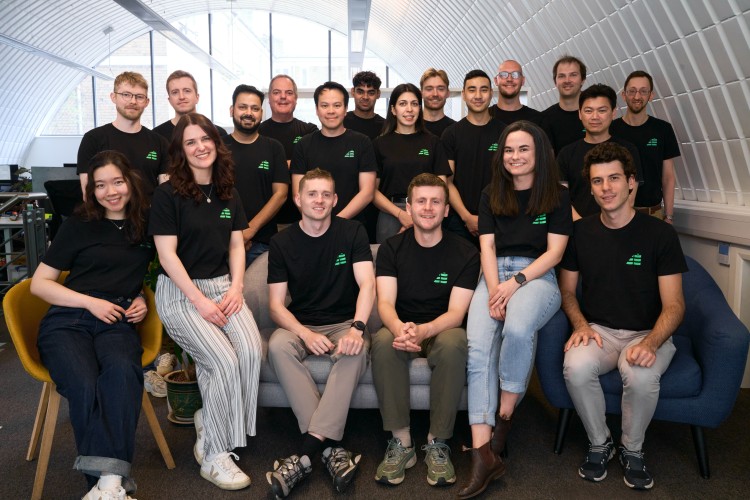- About:Energy partners with Munich-based EFT Mobility, part of Quantum Systems Group, to accelerate battery innovation for drone platforms
- About:Energy’s modelling platform replaces manual processes, enabling faster, more reliable cell selection in the critical early design phase
- EFT Mobility cut cell shortlisting by six months, sped up pack development by three months and improved thermal issue detection by 20%
- About:Energy’s London facility continuously tests a vast range of commercial cells, feeding its platform of more than 30 high-performance and next-generation chemistries that power customers across space, defence, aviation, drones, automotive and motorsport
London : About:Energy announced its partnership with EFT Mobility, a Munich-based engineering company specialising in drone battery system development and part of Quantum Systems Group. Quantum Systems is a German company that develops advanced unmanned aerial vehicles for defence, security and commercial use.
The collaboration sees About:Energy’s modelling platform enabling faster, more reliable battery cell comparison and selection during the critical early design phase for EFT Mobility, where choosing the best-performing cell is a strategic decision for drone flight time, longevity and overall programme success.
EFT Mobility, which develops electrification solutions for drone platforms, has moved beyond the industry status quo of relying on limited manufacturer data and internal test capabilities by leveraging simulation to accelerate cell evaluation. This approach enables faster assessment of multiple high-performance cells, including advanced Amprius variants, to optimise performance for each specific drone application.
By implementing About:Energy’s platform, EFT Mobility has achieved remarkable efficiency gains. The company reduced cell shortlisting time by 6 months through fast side-by-side comparisons of cells across flight-time, power, payload, and thermal trade-offs. Additionally, pack development was accelerated by 3 months using scalable simulations to validate designs before physical testing, while thermal issue detection improved by 20%.
Dr Gavin White, Co-founder and Chief Executive Officer of About:Energy, said:
“Drones face intense pressure to maximise flight time, safety and reliability, yet cell selection and validation are often slow, data-limited and costly. EFT Mobility has been an outstanding partner to showcase how simulation changes this reality. Together we are proving that high-quality battery data and virtual prototyping cut guesswork, speed up design timelines and enable right-first-time decisions, transforming drone battery development.”
Tobias Kahnert, CEO of EFT Mobility, said:
“We want to deliver the best drone battery solutions across multiple cell types and platforms, while giving our customers a rapid route to market. Achieving this means thinking differently from the way things are typically done in our industry. About:Energy’s platform provides access to high-quality cell data that accelerates our selection and design processes, helping us quickly find optimal configurations for weight, flight-time and thermal trade-offs.”
About:Energy’s comprehensive approach to battery data collection sets it apart in the industry. At its London facility, new cells are characterised and added to their database within four weeks. This gives engineering teams the latest insights into emerging technologies that are essential for maximising performance and programme economics, which is especially critical in drone-related industries where geopolitics and supply chain changes require companies to constantly assess suppliers to ensure they can launch successful programmes.
The platform also provides answers that would normally require multi-year testing in drones, allowing companies to predict and mitigate degradation issues such as swelling in common pouch cells before they impact designs. This rapid, high-quality data enables customers like EFT Mobility to evaluate cell selection, thermal strategies and fast-charging protocols early in the design process, supporting faster and more confident technical and commercial decisions.













